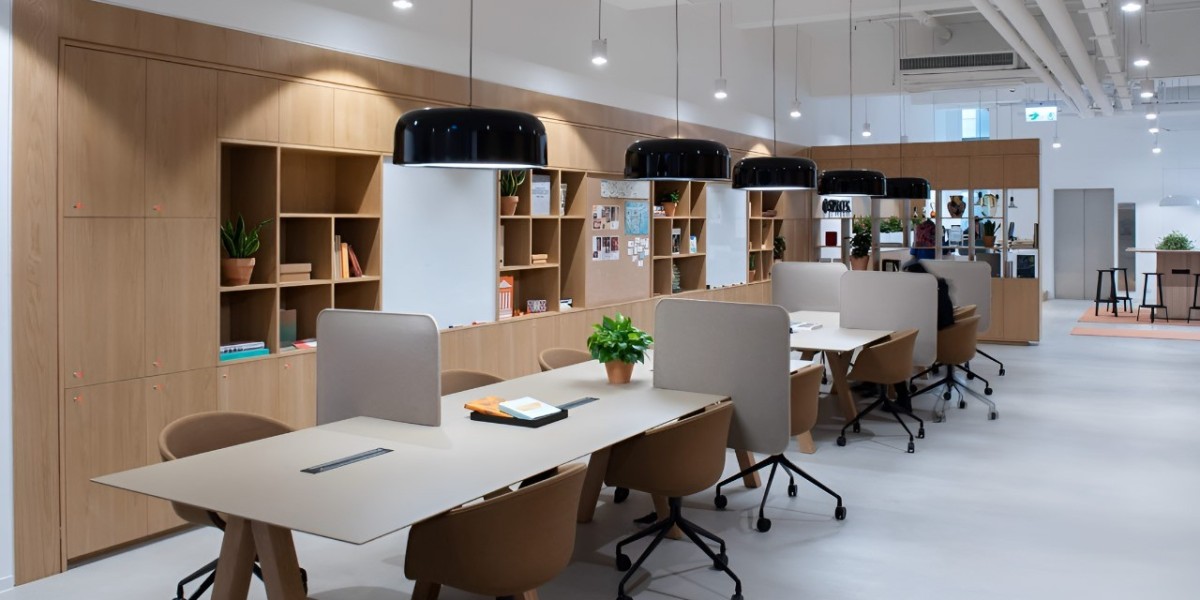Remote work is now a permanent part of modern business life, and more people are setting up dedicated home offices to stay productive and focused. But working from your dining table or couch isn’t ideal for posture, workflow, or professionalism. The right office furniture transforms a corner of your home into a productive, organized, and comfortable workspace.
Why a Proper Home Office Setup Matters
Working from home comes with unique challenges:
Distractions from household noise and interruptions
Discomfort from makeshift work setups
Lack of separation between personal and professional life
A well-planned home office with the right office furniture improves focus, productivity, and mental well-being.
Essential Office Furniture for a Professional Home Workspace
1. Ergonomic Office Chair
This is the most important investment for any home office. A high-quality ergonomic chair provides lumbar support, adjustable features, and cushioning for long workdays.
Look for:
Adjustable seat height and back tilt
Lumbar support for lower back care
Breathable fabric or mesh
Padded armrests
2. Functional Desk
Choose a desk that offers ample surface area for your laptop, monitor, and essential accessories. Consider a sit-stand desk for added health benefits.
Desk options:
Compact writing desks for small spaces
Corner desks to maximize room layout
Sit-stand desks for posture variation
Wall-mounted or foldable desks for multipurpose rooms
3. Storage Solutions
Keeping your workspace organized is essential. Use compact, practical storage options that fit your home layout.
Smart storage ideas:
Mobile drawer pedestals
Wall-mounted shelves
Vertical filing cabinets
Bookcases for files and décor
4. Task Lighting
Good lighting reduces eye strain and keeps your workspace professional and inviting.
Effective lighting options:
Adjustable desk lamps
Floor lamps for soft ambient lighting
LED lighting strips for under-shelf accents
Design Tips for a Comfortable and Professional Home Office
Choose light, neutral colors for a calm atmosphere
Position your desk near a window for natural light
Use plants to add warmth and improve air quality
Keep clutter minimal with well-planned storage
Select durable, commercial-grade office furniture for longevity
Benefits of Investing in Quality Home Office Furniture
Increases productivity and reduces distractions
Improves posture and physical comfort
Creates a boundary between work and personal life
Enhances video call backgrounds with a professional look
Adds value to your home for future resale
The right office furniture ensures your home workspace feels polished and efficient.
Common Mistakes to Avoid in Home Office Design
Using dining chairs or sofas for work seating
Ignoring ergonomics in favor of aesthetics
Choosing furniture that doesn’t fit the room’s size or layout
Neglecting storage, resulting in clutter
Relying solely on overhead lighting
Avoiding these pitfalls ensures your home office remains productive and comfortable.
Budget-Friendly Home Office Furniture Ideas
Invest in a top-quality chair first
Use compact, wall-mounted desks for small spaces
Opt for multi-purpose furniture like storage ottomans or foldable tables
Repurpose bookshelves for office supplies
Add plants and affordable LED lighting for ambiance
Even simple, budget-conscious updates can enhance your work-from-home experience.
FAQs About Home Office Furniture
Q1: Is it necessary to have a dedicated room for a home office?
No — with smart office furniture like compact desks and ergonomic chairs, you can set up a professional workspace in a living room corner or spare bedroom.
Q2: What’s the most important piece of furniture for a home office?
An ergonomic office chair is crucial for posture, health, and comfort during long work sessions.
Q3: Are sit-stand desks worth it for remote workers?
Yes — sit-stand desks improve energy, reduce back pain, and help maintain focus throughout the day.
Q4: How can I make a small home office look bigger?
Use light-colored office furniture, mirrors, floating shelves, and compact modular desks to create the illusion of more space.
Q5: What’s the ideal lighting for a home office?
A combination of natural light, desk lamps, and soft ambient lighting creates a balanced, productive environment.
Final Thoughts
Your home office should feel just as professional, organized, and comfortable as any corporate setting. Thoughtfully selected office furniture makes remote work more enjoyable, productive, and sustainable. Focus on ergonomic essentials, practical storage, and clean aesthetics to design a home workspace that supports both your health and career success.









